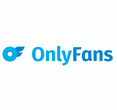
Onlyfans Introduces Background Checks For U.S. Creators: Safety Or Controversy?

Background Checks: A New Chapter for U.S. OnlyFans Creators
In a major shift aimed at enhancing community safety, OnlyFans will now require criminal background checks for new U.S.-based creators. This transformation aligns the platform with common practices in the gig economy, prompting a fresh round of debate regarding privacy and fairness. As one of the largest content subscription platforms, OnlyFans' move mirrors the risk controls seen in companies like Uber and DoorDash.
What the New Screening Means for Creators
How OnlyFans Plans to Vet Its Creators
Creators on OnlyFans have long provided identification and financial information. Now, they must also pass a background check via Checkr, a screening service also used by major companies. OnlyFans leadership emphasized this as a measure to prevent applicants with certain criminal convictions from joining, aiming to enhance user safety.
“At the heart of this change is a commitment to a safer community, but it’s essential we balance this with fairness for all creators,” said a spokesperson for OnlyFans.
Concerns Over Accuracy and Privacy
While the upgrade is focused on creators, it raises questions about data accuracy and privacy. Checkr automates most of its reports, which can speed up approvals but also magnify data errors. Past legal challenges claim the company sometimes misreports or confuses individuals with similar names, a concern echoed by consumer advocates.
Navigating Controversy: The Creator Economy at a Crossroads
Potential Pitfalls for Creators
Under the Fair Credit Reporting Act (FCRA), OnlyFans will need to follow strict protocols: obtaining applicant consent, providing report copies, and allowing disputes over errors. Setting clear guidelines on disqualifying offenses and lookback periods will be crucial for fairness and accuracy.
Industry Pressures and Regulation
With tightening regulations and payment network policies, platforms like OnlyFans are under pressure to enhance compliance. This trend is reflected across the industry, signaling a move towards formalized screenings for both creators and studio partners.
Privacy, Equity, and the Path Forward
The rollout of background checks also raises significant privacy concerns, particularly about how data is stored and used. Transparency in decision-making processes and independent audits will be vital for building trust among creators, particularly for those disproportionately affected by systemic errors.
As OnlyFans refines this policy, creators should remain vigilant about their rights, understanding the screening process and preparing to challenge inaccuracies. Successfully balancing safety and inclusivity will require clear rules, open communication, and accountability from OnlyFans and Checkr alike.














